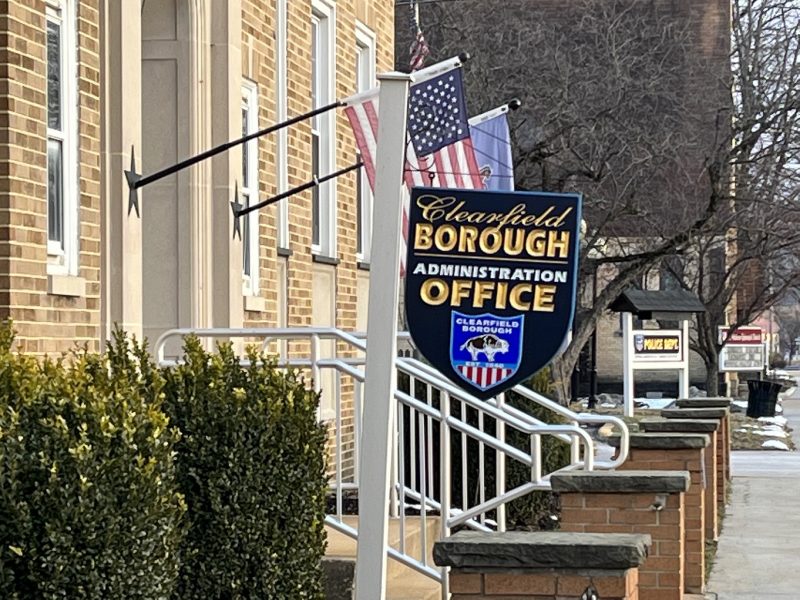CLEARFIELD – An officer shortage has been putting a significant strain on the Clearfield Borough Police Department.
Coverage has been resting on the shoulders of seven full-time officers, which includes Chief Vincent McGinnis, plus two part-time officers.
Those part-time officers work full-time hours, but don’t reap all the benefits of a full-time officer. “Most of the time, they work seven days a week – 12-hour shifts,” McGinnis said Thursday night.
Officers have also sacrificed their vacation time and scheduled days off to provide their community with the coverage and protection they feel it deserves.
The shortage, McGinnis said, is due to an ongoing struggle to recruit and retain new officers because other departments, like Altoona and St. Marys, hire full-time.
And to make matters even worse, cadet numbers are down at the Act 120 Municipal Police Academy at Indiana University of Pennsylvania (IUP).
In 2021 overtime pay cost the borough over $75,000, and is part of what’s driving council’s Public Safety Committee to pursue other options, including regionalization, to resolve the officer shortage and financial woes.
Borough Operations Manager Leslie Stott said the officer shortage is a nation-wide problem right now, and she felt that regionalization was an “awfully big step.”
She suggested considering either a 16-hour police department, which has been done in Bellefonte for years, or establishing some other mutual aid agreement with Lawrence Township.
When Stott asked if the department had reviewed its shift call logs, McGinnis said officers don’t get to pick and choose when calls come in or the type of calls that they receive.
“I would hate for that to happen,” he said, and to which Stott replied there wasn’t another $144,000 in the borough to pay for regionalized police services.
In an interview with GANT News following the meeting, McGinnis said he supports establishing a regionalized police force that would join the Clearfield Borough and Lawrence Township police departments.
“No one would lose their job, and everybody would become a full-time officer,” he said, and manpower would increase with four to five officers on-duty each shift.
Regionalization would also draw new officers with full-time opportunities and room for advancement. “It would help with our recruitment …. officers would want to come here.”
